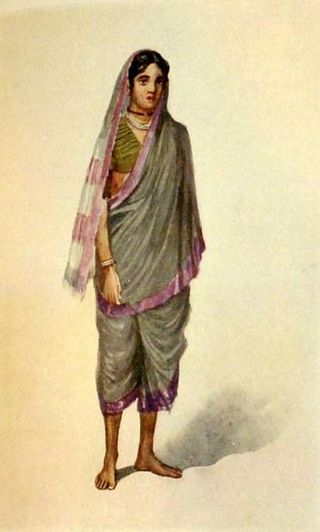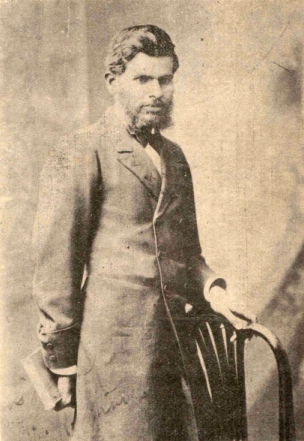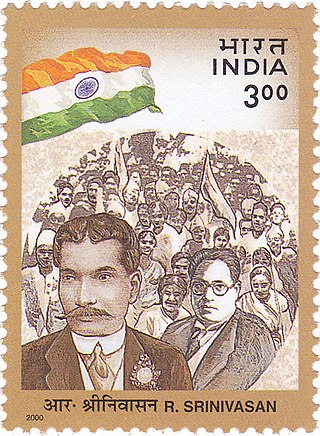Related Research Articles

Chakravarti Rajagopalachari BR, popularly known as Rajaji or C.R., also known as Mootharignar Rajaji, was an Indian statesman, writer, lawyer, and Indian independence activist. Rajagopalachari was the last Governor-General of India, as when India became a republic in 1950 the office was abolished. He was also the only Indian-born Governor-General, as all previous holders of the post were British nationals. He also served as leader of the Indian National Congress, Premier of the Madras Presidency, Governor of West Bengal, Minister for Home Affairs of the Indian Union and Chief Minister of Madras state. Rajagopalachari founded the Swatantra Party and was one of the first recipients of India's highest civilian award, the Bharat Ratna. He vehemently opposed the use of nuclear weapons and was a proponent of world peace and disarmament. During his lifetime, he also acquired the nickname 'Mango of Salem'.
Mala is a Telugu caste from the Indian states of Andhra Pradesh and Telangana. They are also present in smaller numbers in the states of Karnataka and Maharashtra. They are considered as Scheduled Caste (SC) or OBC depending on religious status by the Government of India. According to 2001 census data, Malas constituted 41.6 percent of the Scheduled Castes population in the then state of Andhra Pradesh, which also included the present state of Telangana.

The Dalit Buddhist movement is a religious as well as a socio-political movement among Dalits in India which was started by B. R. Ambedkar. It re-interpreted Buddhism and created a new school of Buddhism called Navayana. The movement has sought to be a socially and politically engaged form of Buddhism.

Dalit is a term first coined by the Indian social reformer Jyotirao Phule for untouchables and outcasts, who represented the lowest stratum of the castes in the Indian subcontinent. Dalits were excluded from the fourfold varna of the caste hierarchy and were seen as forming a fifth varna, also known by the name of Panchama. Several scholars have drawn parallels between Dalits and the Burakumin of Japan, the Baekjeong of Korea and the peasant class of the medieval European feudal system.

Jagjivan Ram, known popularly as Babuji, was an Indian independence activist and politician from Bihar. He was instrumental in the foundation of the All India Depressed Classes League, an organisation dedicated to attaining equality for dalits, in 1935 and was elected to Bihar Legislative Assembly in 1937, after which he organised the rural labour movement.

Mahar is one of the dominant caste found in Maharashtra. They were considered as untouchables or low caste. Majority of this community is found in Vidharbha region and neighbouring areas.

Madiga is a Telugu caste from southern India. They mainly live in the states of Andhra Pradesh, Telangana and Karnataka, with a small minority in Tamil Nadu. Madigas are historically associated with the work of tannery, leatherwork and small handicrafts. Today, most are agricultural labourers. They are categorized as a Scheduled Caste by the Government of India. Within the Madiga community, there are various sub-castes include Bindla, Chindu, Dakkali, Mashti, Sangaris and the priestly class is known as Madiga Dasu.

Viduthalai Chiruthaigal Katchi, formerly known as the Dalit Panthers of India or the Dalit Panthers Iyyakkam, is an Indian social movement and political party that seeks to combat caste based discrimination, active in the state of Tamil Nadu. The party also has a strong emphasis on Tamil nationalism. Its chairman is Thol. Thirumavalavan, a lawyer from Chennai, and its general secretary is the writer Ravikumar.

Ramdas Bandu Athawale is an Indian politician, social activist and trade unionist from Maharashtra. He is the president of the Republican Party of India (A), a splinter group of the Republican Party of India and has its roots in the Scheduled Castes Federation led by Dr. B. R. Ambedkar since 1999. Currently, he is the Minister of State in the Ministry of Social Justice and Empowerment, Government of India since 2016 and represents Maharashtra in Rajya Sabha, the upper house of India's Parliament since 2014. Previously, he was Lok Sabha MP from Pandharpur from 1999 to 2009 and from Mumbai North Central Lok Sabha constituency from 1998 to 1999. He was also Cabinet minister of Maharashtra from 1990 to 1995 and a member of the Maharashtra Legislative Council from 1990 to 1996.

Vitthal Ramji Shinde was a revered social reformer, researcher, writer, and proponent of anti-untouchability activism and religious unity in Maharashtra, India. He played a prominent role among liberal thinkers and reformists before India gained independence. Shinde is recognized for his tireless efforts in fighting against the practice of ‘untouchability’ and advocating for support and education for ‘untouchables,’ including Dalits.

Erode Venkatappa Ramasamy, revered by his followers as Periyar or Thanthai Periyar, was an Indian social activist and politician who started the Self-Respect Movement and Dravidar Kazhagam. He is known as the 'Father of the Dravidian movement'. He rebelled against Brahmin dominance and gender and caste inequality in Tamil Nadu. Since 2021, the Indian state of Tamil Nadu celebrates his birth anniversary as 'Social Justice Day'.

Diwan Bahadur Rettamalai Srinivasan, commonly known as R. Srinivasan, was a Scheduled Caste activist and politician from then Madras Presidency of British India. He is a Paraiyar icon and was a close associate of Mahatma Gandhi and was also an associate of B. R. Ambedkar. He is remembered today as one of the pioneers of the Scheduled caste movement in India. He founded the Adi dravida mahajana sabha in 1893.
Paul Chirakkarode was a noted Malayalam- and English-language author, social critic, orator, and human rights activist. The author has been considered one of the pioneers of Dalit Literary Movement in India.

The Pasi is a Dalit (untouchable) community of India. Pasi refers to tapping toddy, a traditional occupation of the Pasi community. The Pasi are divided into Gujjar, Kaithwas, and Boria. They are classified as an Other Backward Class in Andhra Pradesh and Telangana. They live in the northern Indian states of Bihar and Uttar Pradesh.
Dalit literature is a genre of Indian writing that focuses on the lives, experiences, and struggles of the Dalit community, who have faced caste-based oppression and discrimination for centuries. This literature encompasses various Indian languages such as Marathi, Bangla, Hindi, Kannada, Punjabi, Sindhi, Odia and Tamil and includes diverse narratives like poems, short stories, and autobiographies. The movement originated in response to the caste-based social injustices in mid-twentieth-century independent India and has since spread across various Indian languages, critiquing caste practices and experimenting with different literary forms.

B. Shyam Sunder was born in Aurangabad district in Bombay Presidency, British India. His father was B. Manicham, a railway employee, his mother Sudha Bai and Manik bai younger sister. He was a political thinker, jurist, prolific writer, parliamentarian and a revolutionary leader. In 1937, he founded the Dalit-Muslim unity movement at Parbhani in Aurangabad, Maharashtra and urged his people to join hands with Muslims. He was a legislator representing Andhra Pradesh and Mysore State.
Swami Achhootanand was a 20th century Indian anti-caste intellectual,Dalit leader, writer, and social reformer. A former Arya Samajist, he became disillusioned with the Arya Samaj and established the Adi Hindu movement. He was a poet, critic, dramatist, and historian.
Ramnarayan Yadavendu (1909–1951) was a Hindi writer, storyteller, essayist and social reformer.
Muldas Vaishya was an Indian politician, activist and social reformer.
Chandrika Prasad 'Jigyasu' (1880s/1890s—1974) was an Indian anti-caste intellectual, Hindi-language writer, and publisher of Dalit literature.
References
- ↑ Narayan, Badri (11 May 2011). The Making of the Dalit Public in North India: Uttar Pradesh, 1950–Present. Oxford University Press. ISBN 978-0-19-908845-4.
- ↑ "#हिंदीहैंहम: संतकवि चौधरी मुल्कीराम, एक प्रशासनिक अधिकारी जो बन गया हिंदी साहित्य का साधक". Amar Ujala (in Hindi). Retrieved 19 November 2020.
- ↑ Paswan, Sanjay; Jaideva, Pramanshi (2002). Encyclopaedia of Dalits in India: Leaders. Gyan Publishing House. ISBN 978-81-7835-033-2.
- ↑ Kshīrasāgara, Rāmacandra (1994). Dalit Movement in India and Its Leaders, 1857–1956. M.D. Publications Pvt. Ltd. ISBN 978-81-85880-43-3.